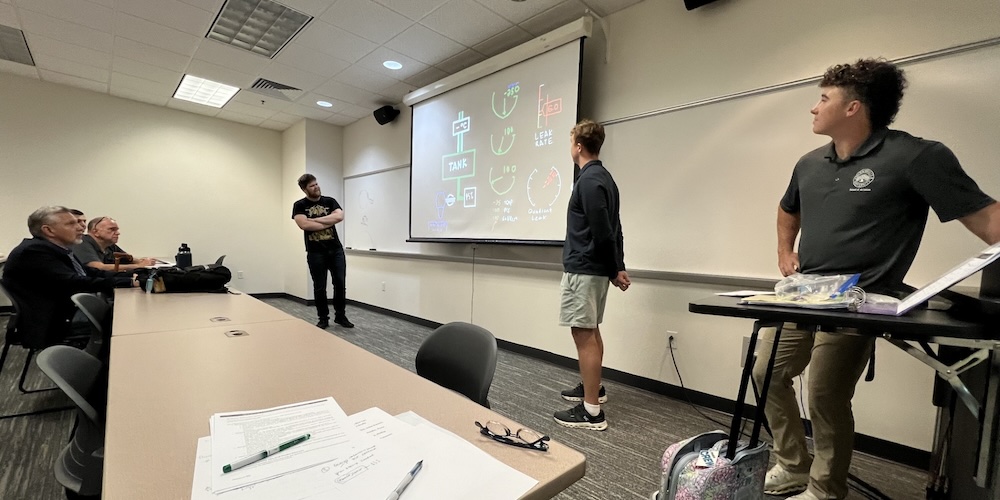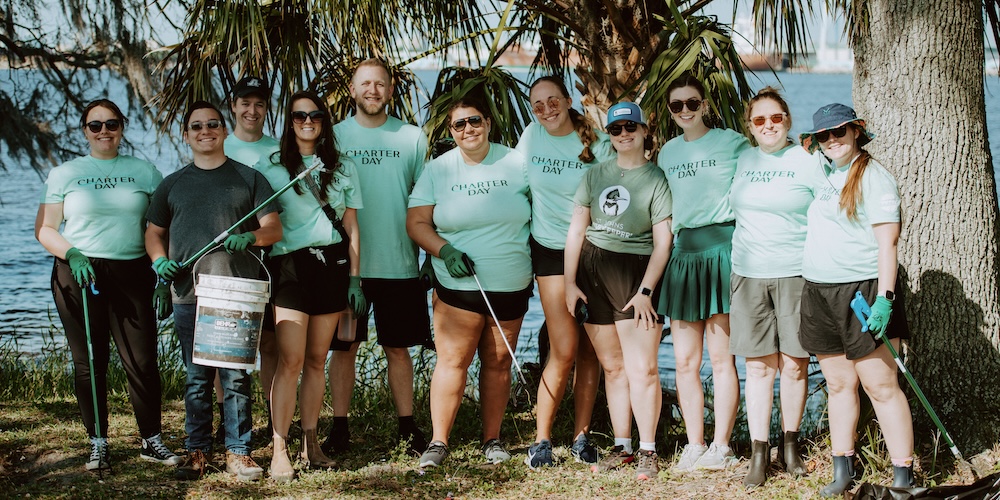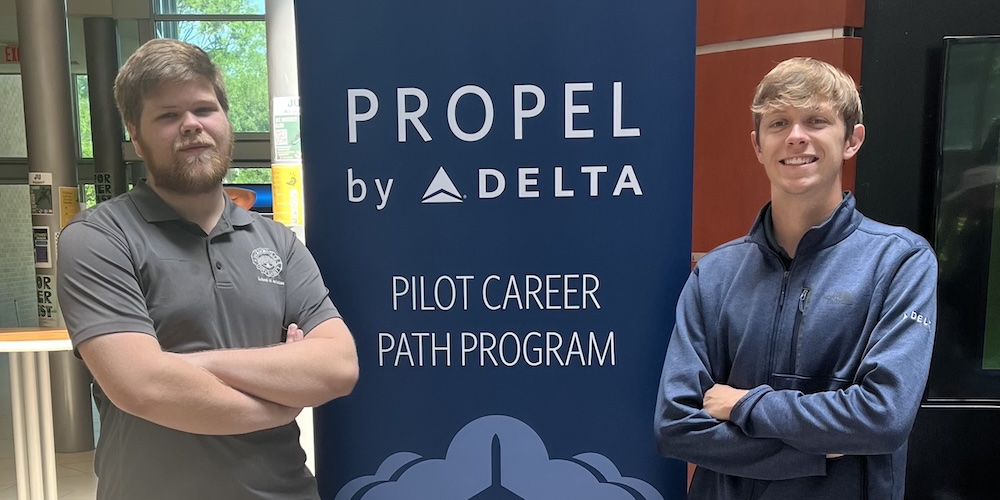Shooting for the stars — and landing among the nation’s elite — Jacksonville University is the only university in the country with two student teams selected as finalists in NASA’s 2025 Human Lander Challenge, a national competition driving the future of space exploration. JU students and faculty are among 12 national finalists that include MIT, Ohio State, Embry-Riddle and Cal Poly Pomona.
Focused on developing cutting-edge solutions for storing and transferring cryogenic fuel in space, the competition supports NASA’s Artemis program, which is preparing to send astronauts to the Moon and eventually to Mars. Each JU team will receive a $9,250 development stipend to refine their concepts ahead of the final competition in Huntsville, Alabama, in June.
“Being the only university selected with two finalist teams is an extraordinary accomplishment — a reflection of the talent, ambition and collaborative spirit of our students and faculty,” said Jacksonville University President Tim Cost. “This recognition underscores Jacksonville University’s growing impact in STEM innovation and continued commitment to excellence on the national stage. When the national contenders are Jacksonville University, MIT, Ohio State, Embry-Riddle and Cal Poly Pomona, among others, you know you’re thriving at the highest level.”
The two selected JU proposals are:
● “Cryogenic Complex: Cryogenic Tanks and Storage Systems – on the Moon and Cislunar Orbit”
● “Cryogenic Fuel Storage and Transfer: The Human Interface – Monitoring and Mitigating Risks”
Dr. Angela Masson, assistant professor of aeronautics at Jacksonville University, is spearheading the efforts. “Jacksonville University has created an environment rich in support, innovation and opportunity,” said Dr. Masson. “The dedication of our faculty, the commitment to small class sizes and the leadership of President Tim Cost and Interim Provost Dr. Sherri Jackson empowers students to thrive at the highest academic levels — and NASA’s recognition of our teams is a direct result of that.”
The two teams represent a cross-disciplinary collaboration between JU’s School of Aviation and the Davis College of Business and Technology, demonstrating the power of integrated research and innovation. The students were supported by a talented roster of faculty advisors including Dr. Brian Kopp (associate professor of engineering), Dr. James Simak (director of the Center for Organizational Research and Executive Education, assistant professor of management & entrepreneurship) and Dr. Reza Sarraf (assistant professor of computing science). Their combined expertise helped guide the technical and human-centered aspects of the projects.
“Our students embody the spirit of John F. Kennedy’s famous words: ‘We choose to go to the Moon, and do other things… not because they are easy, but because they are hard.’ They understood that this competition would push them — and they accepted that challenge with purpose, passion and the belief that they could win,” said Masson.
The finalist teams will now prepare technical papers and present their innovative solutions to NASA and industry leaders at the Human Lander Challenge Forum. The top three placing teams will share an $18,000 prize purse.
To follow the competition and team updates, visit https://hulc.nianet.org/.


